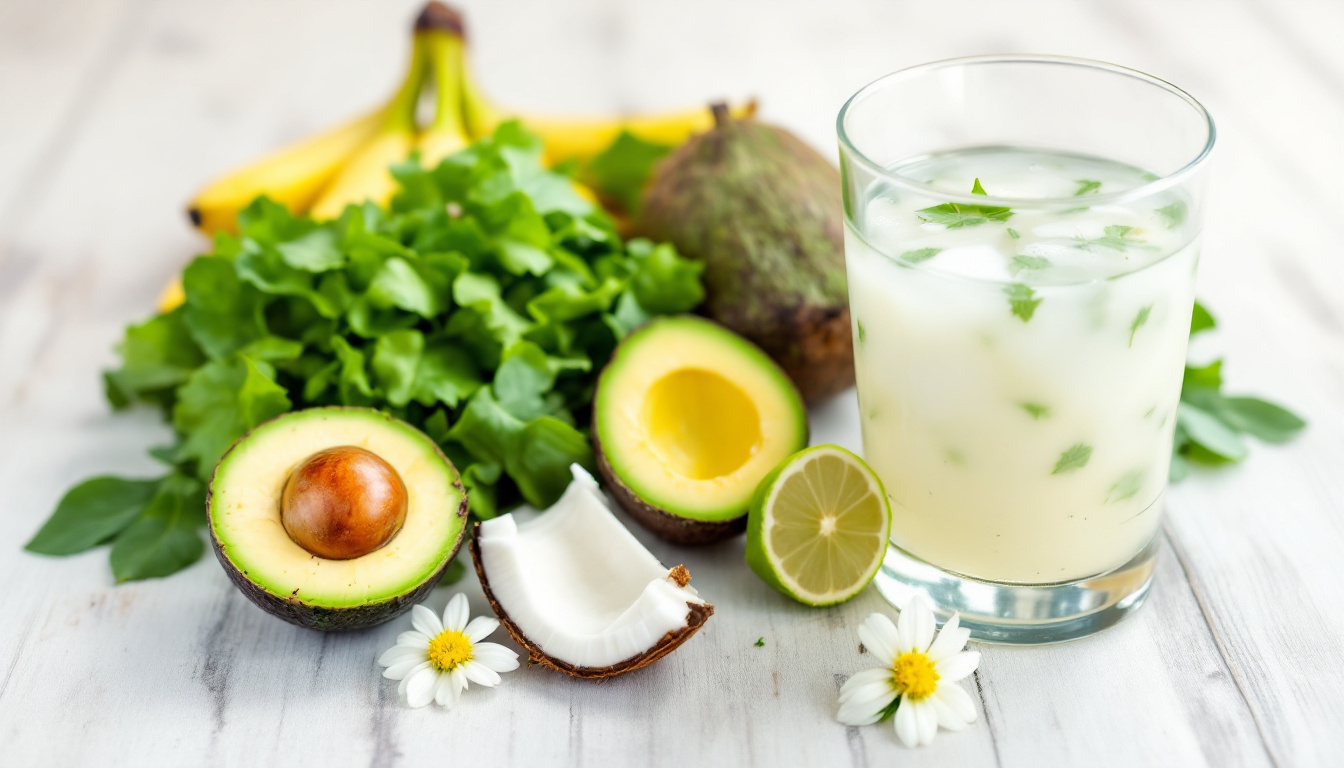When you think of hydration, your mind might immediately jump to water, the quintessential thirst-quencher. However, there's a crucial component that often goes unnoticed in the hydration conversation: electrolytes. These tiny charged particles play a significant role in maintaining fluid balance and ensuring our bodies function optimally. Understanding the intricate relationship between electrolytes and fluids can empower you to make better choices for your health and well-being.
What Are Electrolytes?
Electrolytes are minerals that carry an electric charge and are found in your blood, urine, and body fluids. They are vital for various bodily functions, including regulating nerve and muscle function, hydrating the body, balancing blood acidity and pressure, and helping rebuild damaged tissues. The presence of electrolytes in the body is essential for maintaining homeostasis, which is the state of steady internal, physical, and chemical conditions maintained by living systems. This balance is crucial for the proper functioning of cells, tissues, and organs, and any disruption can lead to significant health issues.

The Key Electrolytes
Several electrolytes are essential for health, including sodium, potassium, calcium, bicarbonate, magnesium, chloride, and phosphate. Each of these plays a unique role in the body, contributing to everything from muscle contractions to maintaining the pH balance in your blood. Sodium and potassium are perhaps the most well-known electrolytes, crucial for nerve function and muscle contractions. Calcium is not only vital for bone health but also plays a role in muscle function and nerve signaling. Magnesium supports muscle and nerve function, as well as energy production. Bicarbonate helps maintain the body's acid-base balance, while chloride is important for maintaining fluid balance and digestion. Phosphate plays a critical role in energy production and storage, as well as in the formation of bones and teeth.
Electrolyte Imbalance
An imbalance in electrolytes can lead to various health issues. Too much or too little of any electrolyte can cause problems. For instance, high sodium levels can lead to hypertension, while low potassium levels can cause muscle weakness and cramps. An electrolyte imbalance can also result from dehydration, excessive sweating, certain medications, or underlying health conditions such as kidney disease or hormonal imbalances. Symptoms of an electrolyte imbalance can vary widely, including fatigue, confusion, irregular heartbeat, and muscle spasms. It is essential to recognize these symptoms early and consult a healthcare professional for appropriate management. Maintaining the right balance of electrolytes is crucial, especially during activities that cause you to sweat, such as exercise or spending time in hot weather. Sweating leads to the loss of both water and electrolytes, which need to be replenished to maintain optimal body function. In addition to physical activity, factors such as illness, fever, and even certain dietary choices can impact electrolyte levels, making it vital to monitor your intake and hydration status regularly.
Fluids and Their Role in Hydration
While electrolytes are essential, they work hand-in-hand with fluids to keep your body hydrated. Water is the primary fluid that helps transport nutrients and electrolytes throughout the body, ensuring that cells function properly. The human body is composed of approximately 60% water, and this fluid is crucial for various physiological processes, including temperature regulation, joint lubrication, and waste elimination. Adequate hydration is necessary for maintaining cognitive function, physical performance, and overall health. It is important to note that hydration needs can vary based on factors such as age, sex, activity level, and environmental conditions. Therefore, understanding your individual hydration requirements is key to optimizing your health.
Types of Hydrating Fluids
Water is the most straightforward and effective hydrating fluid, but it's not the only option. Sports drinks, which contain electrolytes, can be beneficial during intense exercise or when you're sweating heavily. Coconut water is another natural option that provides electrolytes like potassium and magnesium. Additionally, herbal teas and broths can contribute to your fluid intake while offering various health benefits. Milk and certain fruit juices can also contribute to hydration, offering a mix of water, electrolytes, and other nutrients. However, it's essential to be mindful of the sugar content in some of these beverages, as excessive sugar can lead to other health issues. For instance, while fruit juices can be hydrating, they often contain high levels of natural sugars, which can contribute to weight gain and other metabolic issues if consumed in excess. Therefore, moderation is key when incorporating these beverages into your diet.
Signs of Dehydration
Dehydration occurs when you lose more fluids than you take in, and your body doesn't have enough water and other fluids to carry out its normal functions. Symptoms of dehydration can range from mild to severe and include thirst, dry mouth, fatigue, dizziness, and confusion. In severe cases, dehydration can lead to more serious complications, such as heat injury, urinary and kidney problems, seizures, and low blood volume shock. It's crucial to recognize these signs early and take steps to rehydrate promptly. Monitoring your urine color can be a simple way to assess your hydration status; pale yellow urine typically indicates adequate hydration, while dark yellow or amber urine may signal dehydration. Additionally, individuals engaging in prolonged physical activity or those living in hot climates should be particularly vigilant about their hydration status, as they may be at a higher risk for dehydration.
How to Maintain Electrolyte Balance
Maintaining a proper balance of electrolytes involves a combination of diet, hydration, and lifestyle choices. Eating a balanced diet rich in fruits, vegetables, and whole grains can help provide the necessary electrolytes your body needs. Incorporating a variety of foods into your meals can ensure that you receive a broad spectrum of essential nutrients. For example, leafy greens like spinach and kale are excellent sources of magnesium and calcium, while fruits such as bananas and avocados are rich in potassium. Whole grains, nuts, and seeds can also contribute to your electrolyte intake, making it important to include these foods in your daily diet.
Dietary Sources of Electrolytes
Fruits like bananas and oranges are excellent sources of potassium, while dairy products and leafy greens provide calcium. Nuts and seeds can offer magnesium, and table salt is a primary source of sodium and chloride. Additionally, legumes, such as beans and lentils, are rich in potassium and magnesium, making them a great addition to a balanced diet. Incorporating a variety of these foods into your diet can help ensure you're getting a balanced intake of electrolytes. It's also important to stay hydrated by drinking plenty of fluids throughout the day, especially during and after exercise. For those who may struggle to consume enough electrolyte-rich foods, smoothies and shakes can be a convenient way to boost your intake. Blending fruits, vegetables, and yogurt or milk can create a delicious and nutritious drink that supports hydration and electrolyte balance.
Supplementing Electrolytes
In some cases, dietary intake alone may not be sufficient to maintain electrolyte balance, particularly for athletes or individuals with specific health conditions. Electrolyte supplements can be a convenient way to replenish these essential minerals. These supplements come in various forms, including powders, tablets, and drinks. It's important to choose a product that suits your needs and to follow the recommended dosage to avoid any potential side effects. When selecting an electrolyte supplement, consider factors such as the specific electrolytes included, the presence of added sugars or artificial ingredients, and any dietary restrictions you may have. Consulting with a healthcare professional or a registered dietitian can help you determine the best approach to supplementation based on your individual needs and lifestyle.
Conclusion
Understanding the role of electrolytes and fluids in hydration is crucial for maintaining overall health and well-being. By paying attention to your body's needs and making informed choices about your diet and hydration habits, you can ensure that your body functions optimally. Whether you're an athlete, a busy professional, or someone simply looking to improve your health, keeping your electrolytes and fluids in balance is a key component of a healthy lifestyle. Stay informed, stay hydrated, and keep your body in top condition. Remember that hydration is not just about drinking water; it's about understanding the complex interplay between fluids and electrolytes and how they work together to support your body's functions. By prioritizing hydration and electrolyte balance, you can enhance your physical performance, improve your cognitive function, and promote overall health.





